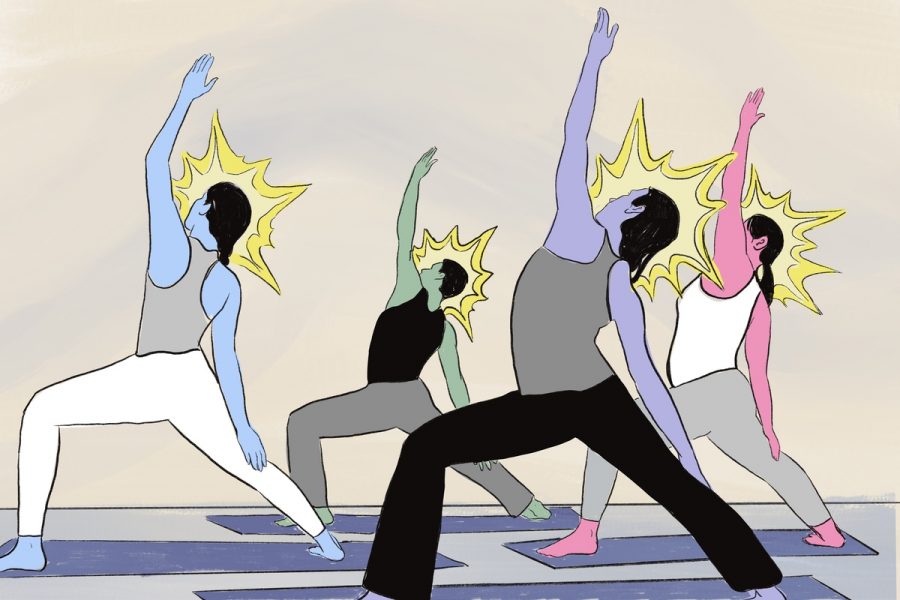Provide free exercise, mindfulness-based resources to students
November 3, 2021
In our increasingly stressful and distracted world, taking a few minutes to close your eyes and meditate or attend a yoga class during a busy week can transform your state of mind.
As a yoga instructor who teaches a weekly class for UT students, I hear overwhelmingly positive feedback about the benefits of attending yoga classes, especially amidst a busy college schedule.
The University should provide free meditation subscriptions and yoga classes for students in addition to the current offerings from the Counseling and Mental Health Center.
Devia Joshi, sustainability studies and liberal arts honors senior, practices yoga and finds that her mindfulness practices are a core part of maintaining a healthy mind and body.
“Mindfulness, yoga, meditation and things like that are really part of mental health and just trying to stay healthy, physically and mentally,” Joshi said. “When you’re in a stressful environment like college, it’s important to maintain a healthy mental state.”
In addition to traditional services such as individual and group therapy sessions, a 24/7 crisis line and identity-based resources, the CMHC offers the MindBody Lab and Thrive App. The MindBody Lab offers information and guided exercises on breathing, muscle relaxation, meditation, food and sleep issues.
Elana Bizer, assistant director of integrated health at the CMHC, highlighted the mindfulness-based services currently offered at the center.
“The MindBody Lab is all about having these firsthand experiences of trying new techniques that you can learn to see if they can help you on a physical basis but also really to help with a lot of emotional distress,” Bizer said.
In addition, the Thrive at UT app is designed to enhance well-being by providing users examples, prompts and reminders to reflect on their emotional and physical states.
“I think the app is the counseling center’s response to wanting to empower students to have these skills at their fingertips,” Bizer said.
However, many students do not take advantage of the MindBody Lab or are not aware that it doesn’t require an appointment. In addition, simply receiving notifications from an app can feel impersonal and repetitive.
Instead, the University should provide students access to content in the form of already established apps created by experts in wellness, psychology and mental health. These apps can provide guided meditations from professionals, a variety of classes based on your mood or instruction from leaders in the wellness industry.
“I feel like there are a lot of things out there like Glo or Headspace, but a lot of times you have to pay for it, and that makes it less accessible,” Joshi said. “If UT provided guided meditation or resources for free, I think that’d be really helpful.”
In addition, providing students a number of credits or unlimited access to TeXercise, which provides online and in-person classes for popular exercise classes such as barre, kickboxing, cycling, yoga and zumba, would be a helpful addition.
Given the demands of maintaining a social life, keeping up with school work, working out and eating healthy, college students face constant constraints on time, money and energy. The University should look out for students’ mental and physical health during their time on the Forty Acres, while equipping them with the tools they need to take on their next life transition.
Raghu is a Plan II, Middle Eastern Studies and Arabic senior from Coppell, Texas.











